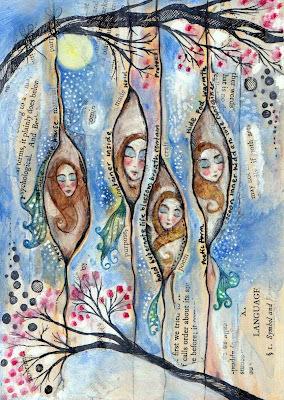I recently read Millhauser's short story "Mermaid Fever," found here
at
Harper's Magazine for free. "The Little Mermaid" has been retold many
times (
Midnight Pearls by Debbie Viguie,
Mermaid by Carolyn Turgeon),
and then there was the rumor that Stephanie Meyer was writing a book
on the topic of mermaids. Anyway, it's interesting to see different authors'
takes on the creatures (
Sur La Lune has a list of modern literary
interpretations, short or long, for any who are interested), as it is wonderful
to see different illustrators' treatments below. Enjoy.
At 5:06 a.m. the body was discovered by George Caldwell, a forty-year-old
postal worker who lived two blocks from the water and was fond of his early-
morning swim. Caldwell found her lying just below the tide line; he thought
she was a teenager who had drowned. The body lay on its side among strings
of seaweed and scattered mussel shells. Caldwell stepped back. He did not
want trouble. “I thought she was a high school girl,” Caldwell later told a
reporter; we read it in the Listener. “It was still dark out there. I thought she
was wearing some sort of a dress with the top torn off. I could tell she didn’t
look right. I didn’t want to get too close.
- Steven Millhauser, "Mermaid Fever"
There are people all over the world who carry the mermaid inside them, that
otherworldly beauty and longing and desire that made her reach for heaven
when she lived in the darkness of the sea.
- Carolyn Turgeon, Mermaid: A Twist on the Classic Tale





